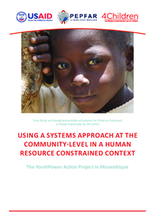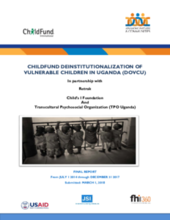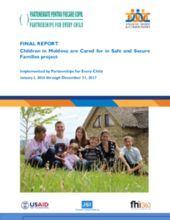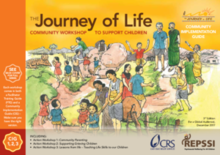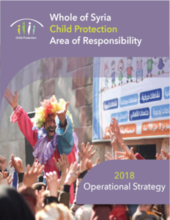Displaying 31 - 40 of 302
This paper asks the question "what contribution are kin and other informal social support networks providing to the care and safety of children of such families?" The paper presents findings from 15 families receiving services from the Department of Social Welfare in Sekondi, Ghana.
This case study is one in a series of case studies highlighting different aspects of a case management system and referral mechanisms utilized by OVC programs. The case study presents a program in Mozambique that could be identified as a hub and spoke model of referral mechanism.
This article discusses emerging trends in deinstitutionalisation and alternative care avenues nationally and internationally and examines the Miracle Foundation's evolution from a residential care provider to a family-based care and family strengthening organization.
This final report on the “Deinstitutionalization of Vulnerable Children in Uganda” (DOVCU) project identifies its successes as well as some shortcomings and key learning that is directly relevant to other projects working to support family care for children.
This final report presents key learning, findings, and results of the “Children in Moldova are Cared for in Safe and Secure Families” (Children in Moldova) project.
The series is designed for communities wishing to support children in need and their caregivers. It includes a facilitator training guide and community implementation guide, as well as guides on protecting children from trafficking and abuse.
This report from the Child Protection Area of Responsibility (CP AoR) highlights the child protection needs and responses in Syria and includes objectives and targets for continued child protection interventions and strategies.
This article reports the findings of a multi-country study of medical professionals' perceptions and evaluations of children in three Eastern European countries (Romania, Bulgaria, Moldova).
A First Nations child welfare organization has prioritized further understanding of reunification and parenting, including identification of successes and barriers to reunification, and service needs within communities. These priorities were addressed with a community-based participatory research model and guided by a Research Advisory.
This article outlines exploratory research in establishing a role for social work in child protection in Indonesia.

